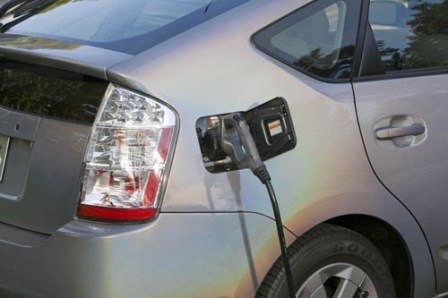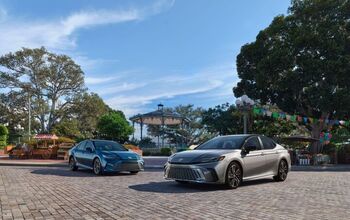CNET: Plug-ins Are Money Losers
CNET News stipulates that plug-in hybrids get more mpg and emit fewer pollutants than standard cars or hybrids, but objects that it would take decades of driving to actually save any money by driving one. According to several months of data from RechargeIT.org, plug-in Priora only use about 88 fewer gallons a year than unplugged Priuses in urban driving, saving between $158 to $250. A $15,000 CalCars conversion would take 60 years to recoup, and a $55K AC Propulsion upgrade – well, forget saving money there. Motion granted, but CNET misses two a Priori points: First, many people didn't originally buy Priora to save cash, they bought them to save the planet – and to be seen as saving the planet. RechargeIT's engineering product manager, Alec Proudfoot, says, "the big focus … is on the CO2 savings, not the cost savings." Second, many people who remember sitting in gas lines, see plug-ins as a hedge against having to do so again. Nevertheless, unreliable batteries may dissuade even the most ardent eco-warrior from relying on a plug-in to get there and back again.
More by Donal Fagan


































Comments
Join the conversation
I agree with those who say that you can't use MPG to compare cars when one car has the capability of getting a percentage of its energy from a source that comes in denominations other than "gallons." And yes, to also confirm something else, the Prius' battery pack lasts so long because it's kept around a 50% SOC (State of Charge). Rarely drops below 20%, and rarely goes above 80%. Deep discharge cycles drastically shorten a battery's life expectancy, so the Prius' computer system does its best to keep the SOC around half. That's how Toyota can afford to offer a 100,000 mile warranty on the hybrid components (and 150,000 miles in California and other places). As for me, I hope to get a plugin Prius (from the manufacturer, not as an add-on) at some point. I also want to put PV panels on my roof to power my house electrical grid during the day, and maybe even allow me to charge my Prius in the garage during the day at a discount. Right now, the payback on PV systems is questionable (considering the initial cost and the longevity of the panels), but in a few years with improved systems, I think it will be a justifiable poposition for me.
The numbers will of course be more favorable once the price of the batteries lowers. Plus, what's Calcars profit margin? 50% or 75%?
Want a good reason to get a plug in? watch The Road Warrior